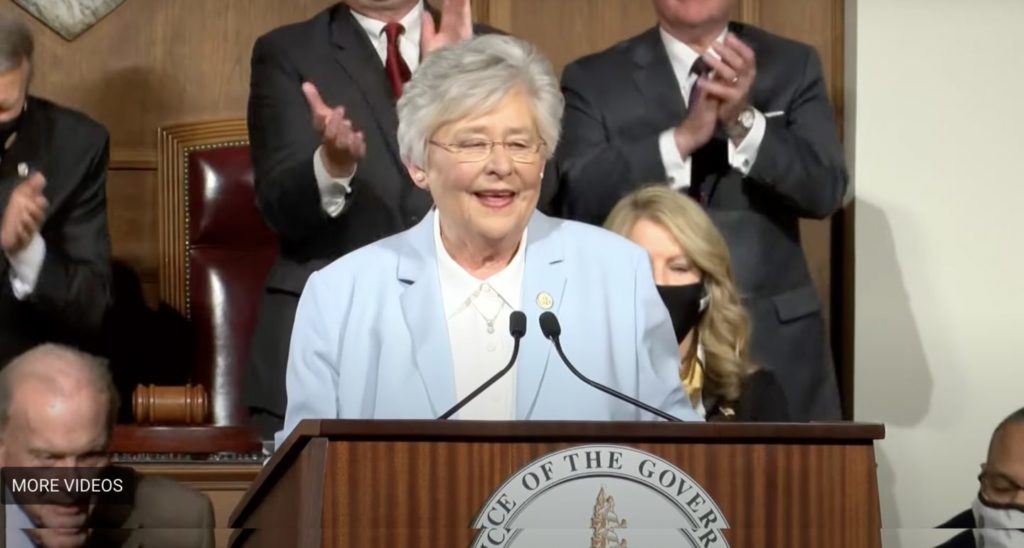Alabama education commission promotes science of reading, math
Alabama is boosting public education by revamping the basics – reading and arithmetic.
Alabama’s Commission on Teaching and Learning submitted a report to Gov. Kay Ivey on Dec. 1, detailing…

Alabama is boosting public education by revamping the basics – reading and arithmetic.
Alabama’s Commission on Teaching and Learning submitted a report to Gov. Kay Ivey on Dec. 1, detailing recommendations for how to improve public education.
The coalition of state lawmakers, educators, and policy experts highlighted the sciences of reading and math as vital to helping Alabama become one of the top 30 states in education.
It currently ranks 39th in reading and 40th in math.
“I made an unyielding commitment of improving education as my number one priority,” said Ivey in a press release. “These recommendations won’t just serve as mere guidelines; they are a blueprint – a roadmap to our goal of positioning Alabama among the top 30 states on the National Assessment of Educational Progress, or NAEP.”
The commission’s report began with the Alabama Literacy Act, which was designed to prevent struggling readers from advancing to 4th grade until some mastery of basic literacy.
Currently, only 32% of Alabama’s 4th graders read at grade level. And 39% are below basic, according to the NAEP.
“Kids who reach fourth grade without being able to read proficiently are more likely to struggle academically and eventually drop out of school,” reports the Annie E. Casey Foundation. “Low reading proficiency also can reduce earning potential and chances for career success as adults.”
To address this problem, the commission recommended the state fully implement the Alabama Literacy Act, which was delayed by the Legislature.
The commission also said that all K-6 teachers should be trained in the science of reading, the evidence-based approach to literacy instruction.
It specifically condemned the “3-cueing approach” – another method of reading instruction – which “focuses more on guessing” than teaching students to read.
“Students hurt the most by 3-cueing are those with poor vocabularies, poor word decoding skills, those with learning difficulties; and English language learners,” the report added.
Alabama wants to transform math instruction too, and the path forward has already been paved with the Alabama Numeracy Act.
Passed in 2022, the Numeracy Act “prohibit[s] the use of the Common Core State Standards” and instead develop “high quality, evidence-based comprehensive mathematics curricula.”
Much like the science of reading, math instruction is also being reformed.
Researchers are debunking counterproductive teaching practices and retraining educators to provide explicit instruction, clear explanations, and make students practice the skills.
The Alabama commission recommended that the state implement the Numeracy Act and invest in research-based methods for teaching math.
Currently, only 35% of Alabama 4th graders are proficient in math. Even fewer – just 26% – will achieve grade level skills before high school.
The report from the commission also addressed additional topics such as teacher recruitment and retention, pre-K and kindergarten programs, and dual enrollment.


